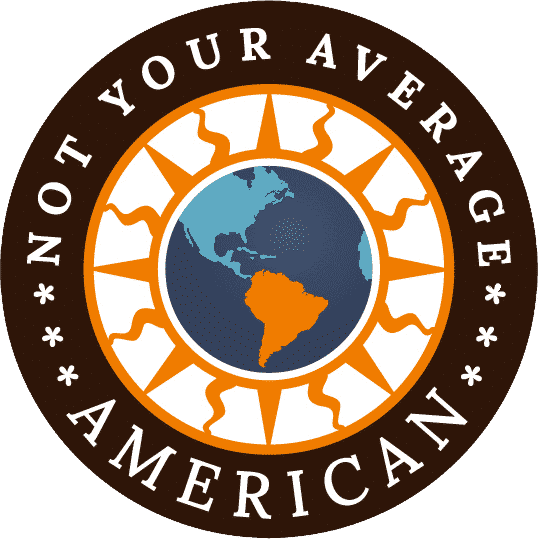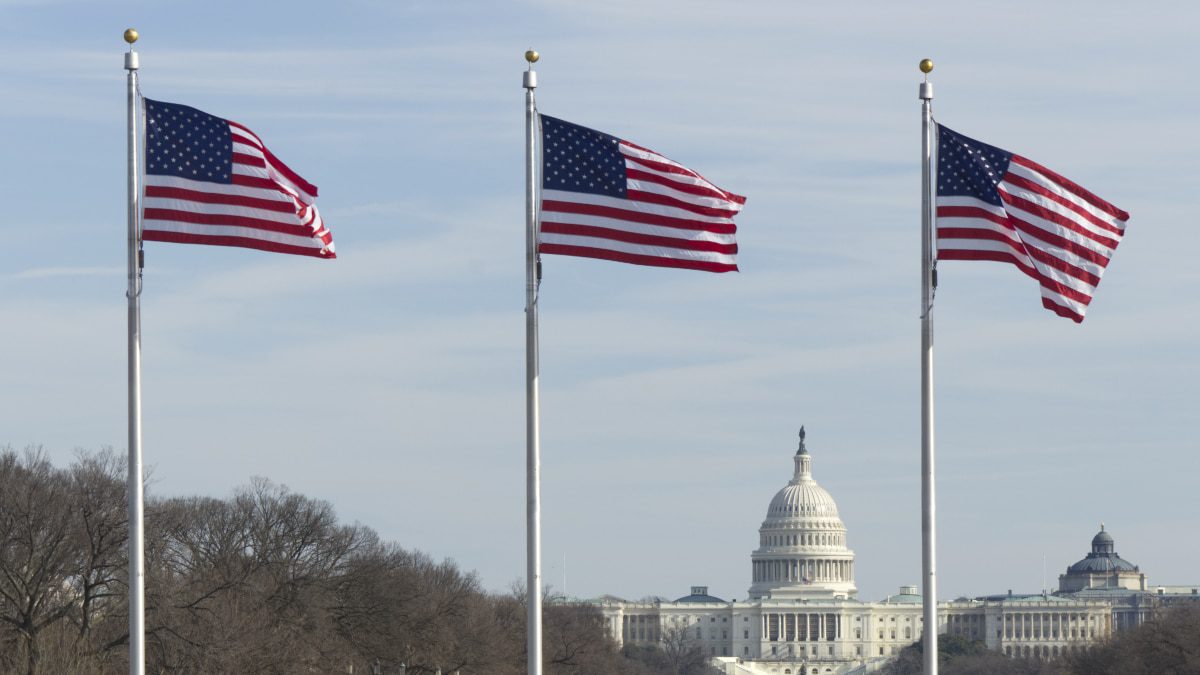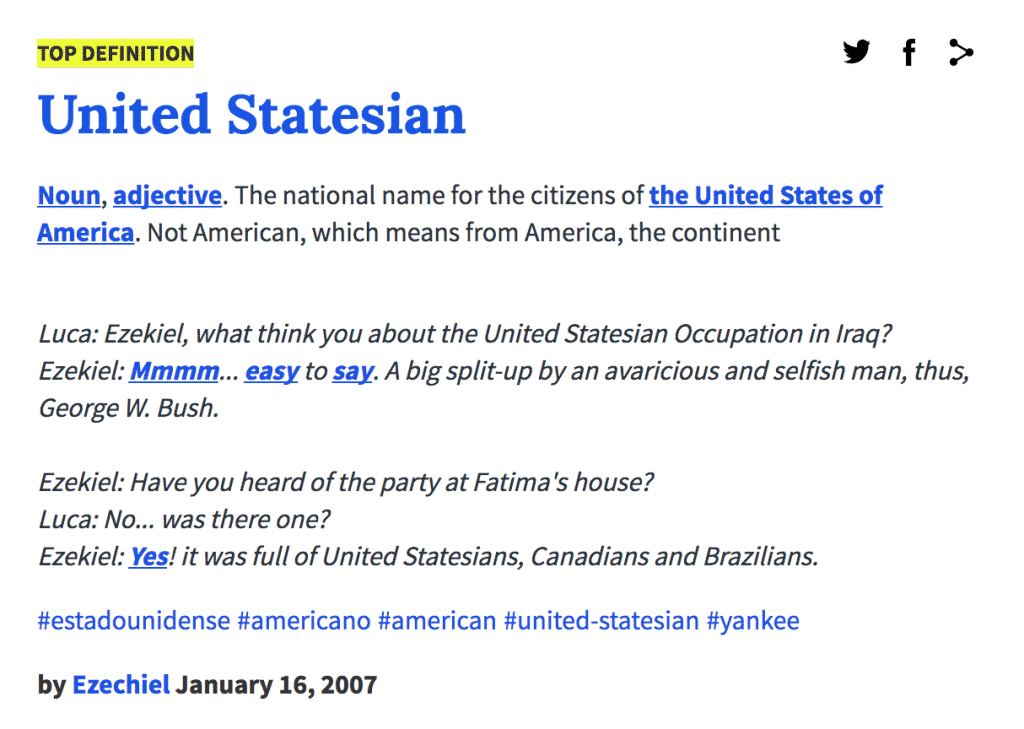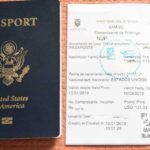Imagine a conversation that goes like this:
A: Hi, my name’s Angie. What’s yours?
J: I’m Jorge. Pleased to meet you.
A: Where are you from Jorge?
J: I’m Argentine. How about you?
A: I’m American!
J: Ummm… so am I. Are you North American?
A: I guess so. I’m from the United States.
J: Ahhh… you are a United Statesian.
Yep, that’s a translation of a the kind of conversation I had with Argentines when I first moved to Buenos Aires.
I learned pretty quickly to offer, “Soy estadounidense” instead of “Soy americana.”
Today, I might also reply, “Soy norteamericana” because, after living in Ecuador, I learned that it was a great alternative to describing where I come from. Obviously, this response leaves a little doubt. Few people thought I was from Mexico – my accent was a dead give away – but they assumed either Canada or the United States. If they wanted to know more, they would ask.
Using estadounidense or norte americana let the other person know that I got it: my US culture did not own the word American… especially when speaking Spanish.
What is an American?
So why do we call ourselves American? It’s simple and complicated at the same time.
The simple explanation is that we have been called Americans our entire lives. If you are from my generation, you might have grown up singing America the Beautiful in school. It describes the beauty of the United States, not Canada, Ecuador, or Brasil. Everything around us tells us that we are American. American as apple pie.
Even my time spent overseas as a child in places like England and the Philippines pounded in the idea that we were Americans, always proud and patriotic. We celebrated the 4th of July, Thanksgiving, and Memorial Day (with BBQs mind you, not visits to soldier’s graves) with complete gusto. When asked where I was from, the answer would be America. I was American.
However, I started to question myself after living in other countries in the Americas. I wanted to know more. That’s where the complicated answer comes in.
History of the word American
The word American was first used around 1570 by Europeans to refer to the indigenous peoples living in the Americas. In about 1640, a new idea started to take hold, that an American was a resident of North America and of European descent. And yet, the word Native American didn’t come into existence until 1765. So there was likely confusion, even in the beginning, as to exactly what the word American meant.
Even in Spanish, American sometimes means that is is something from the United States. A great example of this is the term Americano. Used to refer to a weaker brew of coffee of the kind that Latin Americans believed was a US staple, it first appeared around 1950.
And if you are studying Spanish in a classroom or with an app like Duolingo, you’ll learn that everyone from the United States is “un americano” or “una americana” not “un estadounidense.”
However, according to the Real Academia Española, an institution that protects and maintains the Spanish language, the word America should no longer refer to the United States:
América. 1. Debe evitarse la identificación del nombre de este continente con los Estados Unidos de América (→ Estados Unidos, 4), uso abusivo que se da sobre todo en España.
América. The identification of the name of this continent with the United States of America should be avoided (→ Estados Unidos, 4), an abusive use that occurs especially in Spain.
Of course, they are referring to the Spanish language, not English. But it should make us beg the question, why not use a different word to describe ourselves?
A New Term – United-Statesian
While this is not yet a big conversation in the United States, I predict that it will be.
As we continue to evolve towards a global economy and as the internet erases physical borders, making information more readily available to all, we will find ourselves needing to know exactly who we are in ways that don’t deny others their identity.
Is United-Statesian even a proper word?
While considered non-standard, the word United-Statesian does have a history of use. Check out this description found in The Rob Roy on the Baltic written by John MacGregor in 1867:
For this blue-book is a sort of school primer, intended to teach the Danes how to pronounce the United-Statesian language, and perhaps we English may have a lesson, too.
At the turn of this century, in 2005, it was used by Greg Scott, editor of Cowboy Poetry:
There’s a real United-Statesian bigness to some of the things Whitman says.
Furthermore, Urban Dictionary, a website documenting modern slang, includes Unitedstatesian. This top definition from 2007 is no longer available but it is far better than many of the current ones.
So what’s a United-Statesian to do?
Language is a sly beast, slipping us up when we least expect it. A word can be used for years and then, suddenly, it takes on a new meaning (cool, woke, and savage), is banned (retard, housewife, and homosexual) or is reclaimed (queer, slut, and geek).
At what point do those of us from the United States decide that the term United-Statesian is ready for mainstream use? Of course, none of us will ever make that decision. It will be word that creeps and crawls in back corners of the internet until, one day, it doesn’t.
My advice is, when speaking Spanish overseas, always use the term estadounidense. It avoids any confusion and is unlikely to cause offense. That’s essential when you are a guest in another country.
How about when speaking English? My advice is to try it on, like a new pair of pants.
Maybe it’s a poor fit. More likely, it’s going to be like bell bottoms, appropriate in the right place at the right time.















I personally like American. When I was in Mexico and someone publicly asked where I was from, I said the United States. I was then mocked. Mexico is the United Mexican States. So they laughed at me. I am American. If I said I was from America, people should assume the USA. Otherwise this is North American if I include Canada and Mexico. Why should they be offended? I am offended by their desire to change who I am. This is my opinion. Your article was interesting.
Being mocked is never fun. Thus, in Argentina, to avoid being mocked, I would never call myself an American. You, in Mexico, would always do so. Looks like we may have to be content to adapting to different cultural norms.
Thanks for reading the article and leaving a comment. I always appreciate hearing different experiences. Happy Travels!
Being Canadian I can offer up two observances.
Firstly, in the UK I’m often asked what part of American I’m from. My answer is always the same and usually gets a puzzled look; “I’m from the Canadian part”.
Secondly, travelling with friends from “the States” and when crossing the border returning with them to the U.S. ; I’ve noticed that when U.S. customs asks them to state their citizenship if the response is American- they will restate the question until the response is United States. So I guess this shows that on a governmental level it’s well understood
Thanks so much for leaving this comment, Robert. I love this reply. Especially the part about the puzzled look when answering “from the Canadian part.”
And I had no clue that US Customs prompted such a response. I can see why there might be problems – the answer to “What is your citizenship?” is obviously American because we have no other adjective to describe the United States.
Yet if they asked “From where are you a citizen?” (which is a grammatically correct but a nightmare to say), the response would more likely be, “I am from the United States.”
Thanks for helping me wrap my head around this. ~Angie
Hello! My name is Fabián, I am Argentine, and this question of why the Americans called their country “America” besides the “United States”, had in my childhood funny and tender episodes like believing that James Brown singing “living in America! ” I was singing to all of us in the Americas, since here we consider South America and North America a single continent called precisely… America!
But in recent times, taking advantage of the internet, it became a kind of hobby and I did a lot of research. And what I found pretty much explains why “American” is used as the nationality of people from the United States and why your country has a unusual name for country name (“The United States of America”), which are generally one or two words, like mine for example, Argentina, or New Zealand.
The explanation would be this, that what was founded on July 4, 1776 was not one country but several, the thirteen British colonies declared themselves independent and it is said in thirteen new countries, thirteen new “states” of America (in those times the British -and their descendants from the colonies- also improved that the word “America” was the name of a single continent), the inhabitants of each state improved their demonym as a nationality (New Yorkers, Virginians, Pennsylvanians, Marylanders, etc.) and therefore calling themselves “Americans” had the same continental meaning that is preserved to this day in Latin American countries.
But during the 19th century the idea of unifying as a single country was growing, and had its realization with the end of the civil war, although, with the curiosity of not considering a name change, since “The United States of America” it was a name more for a continental institution of countries than for just one (today there is such an institution, the Organization of American States, with the curiosity of the word “American” used in that continental sense that it does not have in its daily use in the English language).
The word “American” was used fervently during the battles for independence, and the unity it caused was much needed in the face of the sheer power of the world’s largest empire at the time, the Kingdom of Great Britain. Perhaps this is the reason why when unified as a single country its use was not abandoned, and it became a nationality demonym.
Personally, I think it would not be necessary for them to completely abandon that name for their nationality, because I think it would be too traumatic to adopt one so different (United Statesian) as the one they were using until now. And that’s why I suggest just adding to “American” the U and S so characteristic of the full name of the country, that is, “US Americans”.
👋🏼
Hola Fabian! This is a wonderful commentary on the word and concept of American. Thank you so much for sharing it! Would you be interested in sharing this view with a wider audience? We are considering hosting a panel discussion about this concept and I think you would make an excellent guest. If you are interested, please feel free to reach out to angie@notyouraverageamerican.com.
Makes a lot of sense, We are the Unites States OF America!
I kind of like the term “United Statesian” myself.
And this is how it begins 🙂
I miss talking to you too! I hate entering this part of the move where we’re separating from the place we’re at but we haven’t made any connections for where were going. But having my online friends that understand what’s going on helps tons.
I remember the first time I went into the interior of Mexico many years ago. When they asked where we were from, we said we were American. We were constantly corrected to call ourselves “Norteamericanos” as they considered themselves Americans, too! This blew my teenaged mind. That said, I think they get the gist of where we’re from. 🙂 Love the title of your blog, Angie!
It’s funny that they wanted you to call yourselves Norteamericanos because Mexicanos are Norteamericans as well! We wondered if we should just start calling ourselves by the State we identify with – We’re Californians, sort of – but that gets real tricky because military folks don’t always come from any clear state.
Sorry I just saw this! I never did figure that one out–it’s a head scratcher! They said we shouldn’t say Americanos, because they were, too. Ha. That was a new one to my teenaged brain. At any rate, hope your packing is going well as you set off on a new adventure! I miss talking to you. 🙂